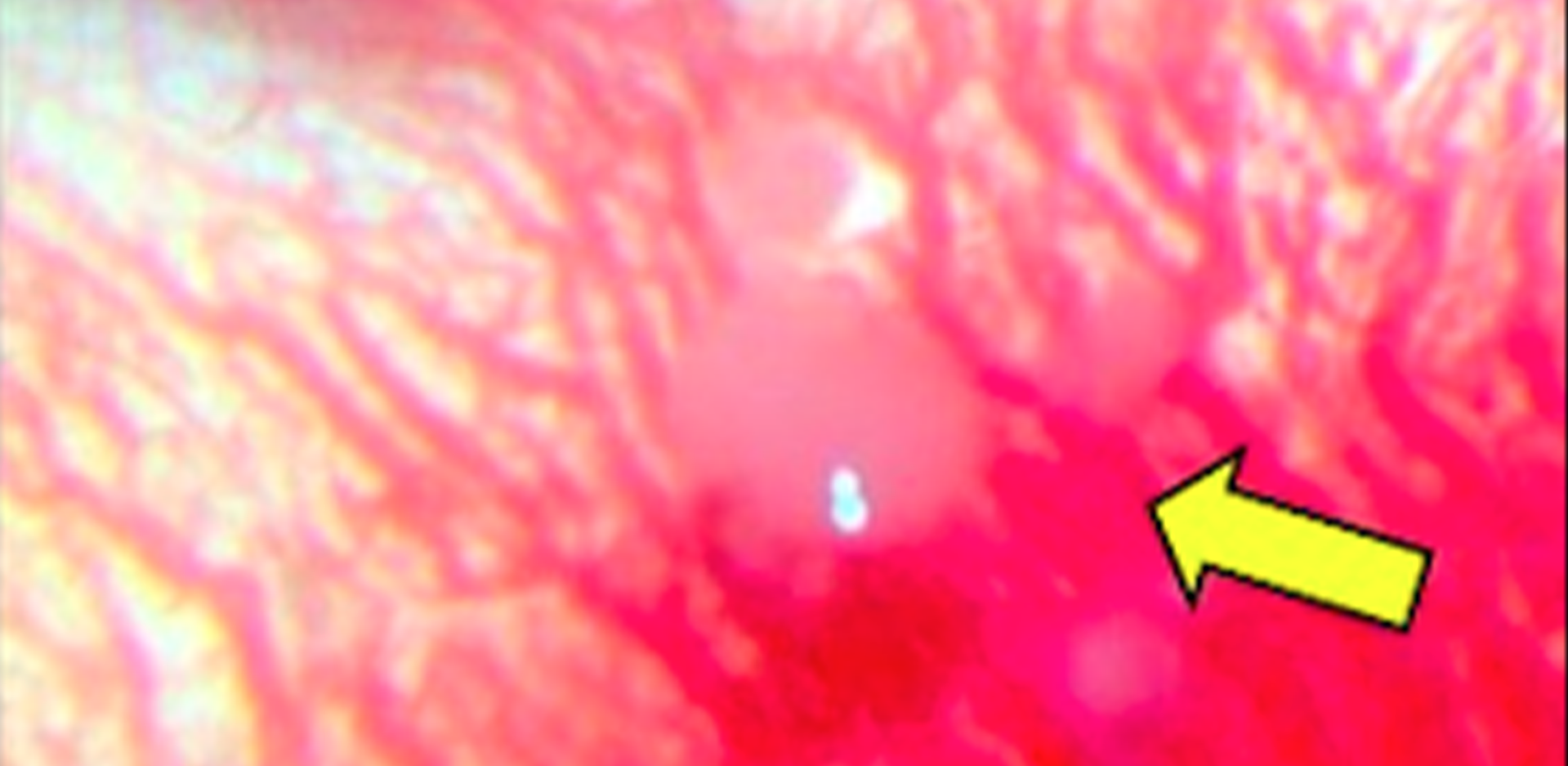Aim: This study aimed to determine the effects of a single intravitreal ranibizumab injection in rabbits induced with retinoblastoma (RB).
Material and Methods: RB was induced in six New Zealand white rabbits by subretinal injection of a cultured WERI-RBb-1 cell line into the right eye. After six weeks, Group A (n = 3) was given intravitreal ranibizumab injection (0.3mg in 0.03ml) and Group B (n = 3) was the control. Baseline and serial clinical examinations were performed on days 1, 3, 6, 12, 15, 18 and 21. The right eyes were enucleated for both groups on day 21 for histopathological examination.
Results: The rabbits in both groups developed intraocular lesions which was detectable clinically at one-week post-tumor inoculation. The tumor grew slowly without spontaneous regression. After the animals in Group A were given an intravitreal ranibizumab injection, regression of the tumor was detected clinically, while the tumor in Group B continued to grow slowly. Histopathological findings confirmed the presence of a tumor that closely resembled features of poorly differentiated human RB cells. At the end of 21 days, the size of the tumor was larger in Group B in comparison to Group A. However, the treated group also developed a focal area of retinal hyperplasia. There was no significant side effect of ranibizumab injection except temporary high intraocular pressure immediately post-injection, which was relieved after paracentesis.
Conclusions: Intravitreal ranibizumab is a potential treatment for RB. It is an effective therapy with a tolerable safety profile in this animal experimental study.

